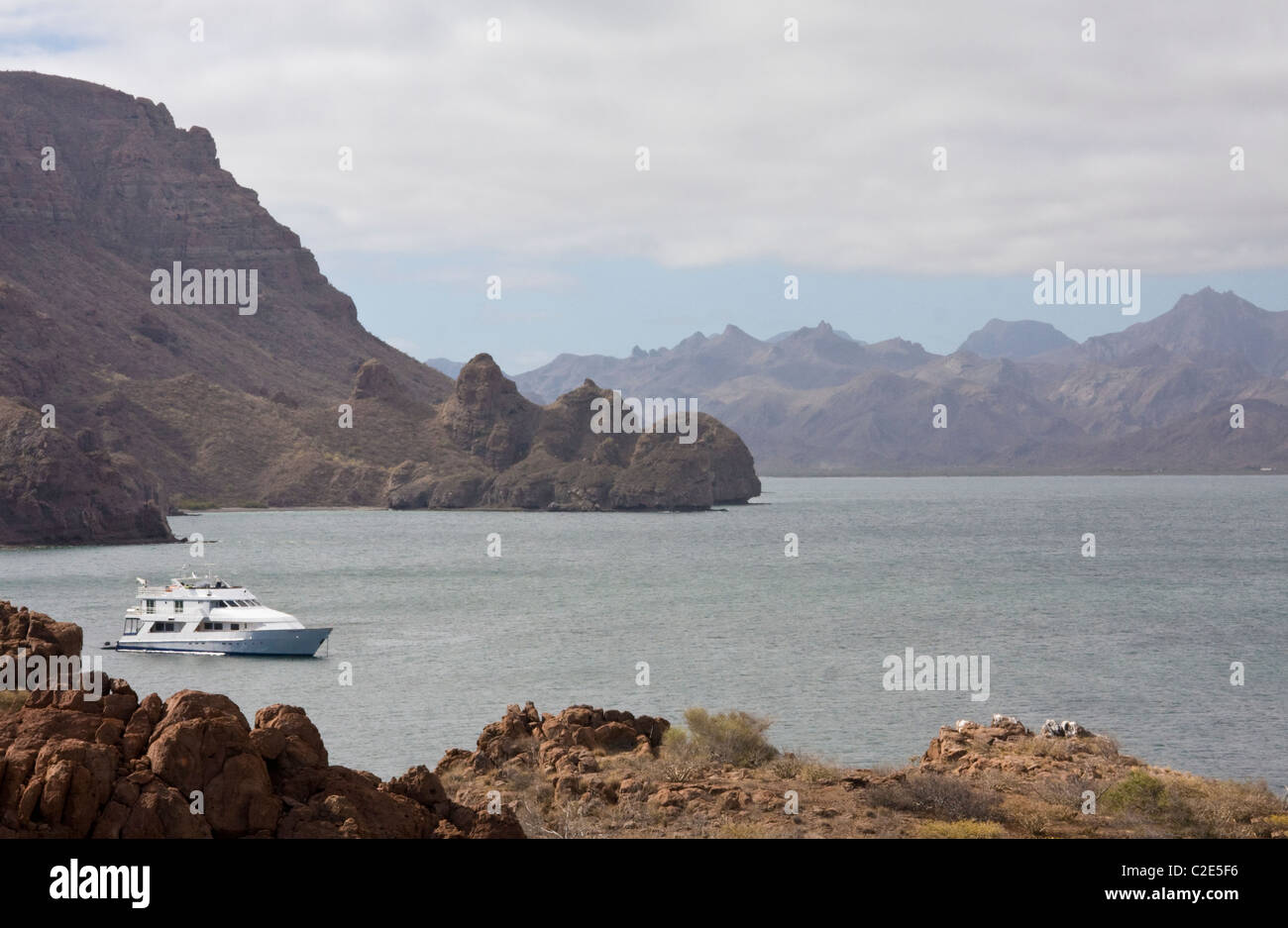Safari Quest at anchor, American Safari Cruises, Sea of Cortez, Baja California, Mexico.

Image details
Contributor:
Ellen Barone / Alamy Stock PhotoImage ID:
C2E5F6File size:
50 MB (1.5 MB Compressed download)Releases:
Model - no | Property - noDo I need a release?Dimensions:
5178 x 3375 px | 43.8 x 28.6 cm | 17.3 x 11.3 inches | 300dpiDate taken:
22 March 2011Location:
Sea of Cortez, Baja California, Mexico.More information:
The Gulf of California (also known as the Sea of Cortez or Sea of Cortés or Vermilion Sea; locally known in the Spanish language as Mar de Cortés or Mar Bermejo or Golfo de California) is a body of water that separates the Baja California Peninsula from the Mexican mainland. It is bordered by the states of Baja California, Baja California Sur, Sonora, and Sinaloa with a coastline of approximately 2, 500 mi (4, 000 km). Rivers which flow into the Gulf of California include the Colorado, Fuerte, Mayo, Sinaloa, Sonora, and the Yaqui. The gulf's surface area is about 62, 000 sq mi (160, 000 km2). The name "Gulf of California" predominates on most maps in English today. The name "Sea of Cortés" is the one preferred by most local residents. The Gulf is thought to be one of the most diverse seas on the planet, and is home to more than 5, 000 species of macroinvertebrates. Baja California itself is actually one of the longest, most isolated peninsulas in the world, second only to the Malay Peninsula in Southeast Asia. The Gulf of California is a UNESCO World Heritage Site. Ecotourism is responsible travel to fragile, pristine, and usually protected areas that strive to be low impact and (often) small scale (as an alternative to mass tourism). Its purpose is to educate the traveler; provide funds for ecological conservation; directly benefit the economic development and political empowerment of local communities; and foster respect for different cultures and for human rights. Since the 1980s ecotourism has been considered a critical endeavor by environmentalists, so that future generations may experience destinations relatively untouched by human intervention.